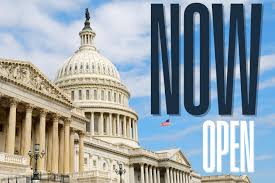We provide individuals who are facing an SBA loan default with solutions. We will analyze your SBA loan problems and advise you on potential solutions such as an SBA offer in compromise.
Dealing with the idea that you might be facing an SBA loan default can be terrifying. The SBA attorneys in our office are skilled at helping clients understand all the facets of their situation. We will advise you as to the potential for an SBA offer in compromise. You should never face your SBA loan problems alone. It is important to retain the services of an attorney who can help you through this difficult time in your life. Please contact us for a free initial consultation.
Per Kent Hoover of the Business Journals, Congress raised the SBA's the 7(a) program's authorization level. The SBA had previously hit its authorization limit with two months left in the fiscal year. This meant no more lending to small businesses under the 7(a) program unless Congress voted to increase the authorization level.
According to Hoover, "The SBA was forced to suspend 7(a) lending on Thursday after the program hit its $18.75 billion annual loan ceiling with more than two months left in the government’s fiscal year. The Senate passed legislation Friday raising that limit to $23.5 billion, and the House followed suit Monday afternoon." Read the complete article here
The freeze in lending could have hampered small business looking for financing going into to the fall and the holiday season. This may have proved troublesome for businesses that were relying on lending to get them through the holiday season when many retail businesses make a large portion of their revenue. Proponents of the 7(a) program argue that the increased authorization is necessary to continue to provide financing and the resultant jobs created.
If you are facing an SBA loan default, contact us today for a FREE initial consultation with an experienced SBA workout attorney at 888-756-9969.
We will analyze your SBA loan problems and advise you on potential solutions such as an SBA offer in compromise for your SBA loan default.

Millions of Dollars in SBA Debts Resolved via Offer in Compromise and Negotiated Repayment Agreements without our Clients filing for Bankruptcy or Facing Home Foreclosure

Millions of Dollars in Treasury Debts Defended Against via AWG Hearings, Treasury Offset Program Resolution, Cross-servicing Disputes, Private Collection Agency Representation, Compromise Offers and Negotiated Repayment Agreements

Our Attorneys are Authorized by the Agency Practice Act to Represent Federal Debtors Nationwide before the SBA, The SBA Office of Hearings and Appeals, the Treasury Department, and the Bureau of Fiscal Service.





.jpg)